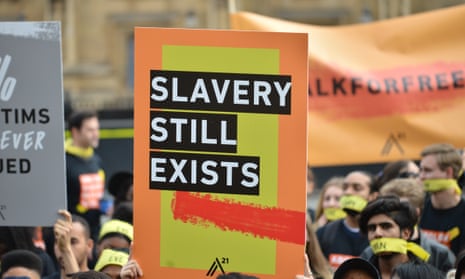Australia’s “restrictive” migration policies may be driving modern forms of slavery, a new report has warned.
The federal government introduced a tough new regime designed to stamp out modern slavery late last year, which compelled corporations to do more to end the use of forced or child labour.
The laws require large businesses operating in Australia to regularly report on the risks of modern slavery in their supply chains, both domestically and internationally, and outline what they are doing to combat it.
The report from the Minderoo Foundation, released on Wednesday, applauded the introduction of the Modern Slavery Act, and named Australia as the 10th most responsive country in the world.
But it warned the laws should be matched by the establishment of an independent commissioner, “to act as an oversight body focusing on the government’s domestic response”.
The report also warned that Australia’s “restrictive and discriminatory migration policies” might be a driver of modern slavery, despite its otherwise strong response.
The report did not detail how Australia’s border policy was driving modern slavery specifically. But it said more broadly that harsh migration schemes put migrants in tenuous, uncertain and vulnerable situations, adding to the risk that they could be exploited for their labour, and reducing their ability to complain or seek help.
Experts welcomed the act as “a start” when it was introduced. But the government also faced criticism for its failure to appoint an independent anti-slavery commissioner to scrutinise government and monitor corporate compliance. It has instead committed $3.6m to establish a “modern slavery business engagement unit” within the Department of Home Affairs.
An independent commissioner had been recommended by a parliamentary inquiry and supported by Labor. New South Wales has also decided to establish an anti-slavery commissioner to oversee its modern slavery laws.
Australia remains one of the few countries to criminalise modern slavery. But identifying such exploitation is rare. Only 150 referrals were made to the federal police in 2016-17, despite estimates there were 15,000 victims on any given day in 2016.
The Modern Slavery Act is expected to force about 3,000 companies to publish annual slavery statements, with sign-off at board level.
There is no penalty for companies breaching the act.
The report was released at the United Nations in New York on Wednesday. The foundation described it as the world’s most comprehensive assessment of the steps 183 governments were taking to tackle modern slavery.
